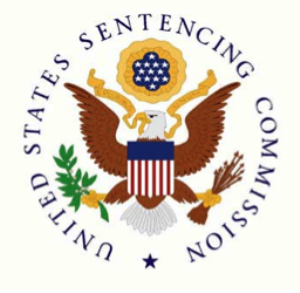The US Sentencing Commission (USSC) voted unanimously Thursday to reduce sentences for most federal drug trafficking defendants. The move comes as the federal prison population continues to increase, driven in large part by drug offenders, even as prison populations in the states are on the decline.

Passage of the Fair Sentencing Act in 2010, which reduced -- but did not eliminate -- the sentencing disparity between crack and powder cocaine offenders, was a step in the right direction. And passage of the Smarter Sentencing Act (House Resolution 3382/Senate Bill 1410), which has already been approved by the Senate Judiciary Committee and is pending in the House, would be another.
That bill, which is supported by the administration, would direct federal judges to not sentence some drug offenders to mandatory minimum sentences, reduce mandatory minimum sentences for other drug offenders, and apply the more lenient crack cocaine sentencing scheme under the Fair Sentencing Act to crack offenders sentenced before it was passed. It also calls on USSC to amend its sentencing guidelines and policy statements for drug offenders to minimize federal prison overcrowding and reduce and prevent racial disparities in sentencing.
But in the meantime, USSC has now, with the administration's support, acted on its own. The commission voted to reduce sentences by amending the federal sentencing guidelines to lower the base offense guidelines in the Drug Quantity Table across various drug types.
The quantity tables place specific quantities of each controlled substance in corresponding sentencing "levels," which in turn contain a range of recommended sentences based on a defendant's criminal history. For instance, under the current guidelines, a drug offense involving at least 10 grams of methamphetamine, but not more than 20 grams, is in sentencing level 18, where the recommended sentence range for an offender with one or no criminal history points is 27-33 months. Under the new guidelines, the same quantity of methamphetamine will be a level 16 offense, which means the recommended sentence range for a first-time offense will be 21-27 months.
The example above is on the low end for federal drug sentences. USSC said the changes would affect about 70% of federal drug trafficking defendants and would result in an average sentence decrease of 11 months. That means the average federal drug trafficking sentence will drop from just over five years to just over four years.

"This modest reduction in drug penalties is an important step toward reducing the problem of prison overcrowding at the federal level in a proportionate and fair manner," said Judge Patti B. Saris, chair of the commission. "Reducing the federal prison population has become urgent, with that population almost three times where it was in 1991."
There are currently more than 216,000 federal prisoners, according to the federal Bureau of Prisons. Slightly more than half (50.1%) are doing time for drug offenses.
Attorney General Holder welcomed the move, calling it "a milestone" in reshaping the way the system deals with drug offenders. He called for Congress to take the next steps.
"It is now time for Congress to pick up the baton and advance legislation that would take further steps to reduce our overburdened prison system," Holder said. "Proposals like the bipartisan Smarter Sentencing Act would enhance the fairness of our criminal justice system while empowering law enforcement to focus limited resources on the most serious threats to public safety. I look forward to continuing to work with lawmakers on both sides of the aisle on these types of common-sense reforms."

"We commend the Sentencing Commission for taking this important step toward reforming federal drug sentences," said Julie Stewart, president of Families Against Mandatory Minimums. "This change will save taxpayers money, help to rein in federal prison spending, and bolster the spirits of tens of thousands of federal defendants who are facing impractical and disproportionately long sentences."
"Our country is slowly but steadily reversing the damage done by the failed, racially biased war on drugs," said Jesselyn McCurdy, senior legislative counsel for the American Civil Liberties Union. "The actions taken by the Sentencing Commission today are another positive move toward reducing unnecessarily long sentences that have led to bloated, overcrowded prisons. Our criminal justice system is smarter, fairer, and more humane than it was a year ago, and we need to make sure momentum continues in the right direction."
"This is a terrific, if modest, first step toward genuine sentencing reform for drug offenders," said Mary Price, legal counsel for FAMM and an expert on the Sentencing Commission. "The next step is for Congress to pick up where the Commission left off by passing the Smarter Sentencing Act."
But first, Congress must allow the USSC recommendations to become law. The drug quantity table amendment, along with others approved by the commission, will go to Congress in May. Barring legislative objections, the new guidelines will become law on November 1, 2014.
Unless USSC votes to make the new guidelines retroactive, they will impact only those defendants sentenced after November 1. The commission voted Thursday to conduct a prison impact study before voting on retroactivity.
This work by StoptheDrugWar.org is licensed under Creative Commons Attribution-ShareAlike 4.0 International
Comments
New 'Lighter Sentences' Too Little, Too Late
This attempt to 'move forward' by lessening sentences by a paltry amount of months is too little, and too late to save a doomed policy. It is like the Spanish Inquisition deciding to stretch you on the rack for an hour and a half instead of two hours. Punishment where not is merited is not OK just because the Inquisitioners said it was! Our politicians need to face the fact that they have lost this 'Drug War'. Perhaps it is even time for them to see that reparations are paid to the victims of their unjust policies. At the very least, our system needs to stop locking people up and victimizing them for drugs and go after actual, not imaginary, criminals. There is no right way to do the wrong thing.
In reply to New 'Lighter Sentences' Too Little, Too Late by Anonymous510000 (not verified)
Lighter sentences
What about the 32 people who are in prison some on death row for marijuana what is the plan with that one. Some people have been in prison over 20 years. Makes me sick to my stomach. You can't put a little band-aid on a gushing wound!
Use the same punishment as that of alcohol abuse.
It is a baby step up. A better solution is to treat drug abuse the way that we treat alcohol abuse. Make it a health and not a legal problem.
Sure wish the Fed's would
Sure wish the Fed's would extend the freedom from any enforcement, like they do for the millions of (ILLEGAL ALIENS AND THEIR Employers.
This is a joke
Add new comment